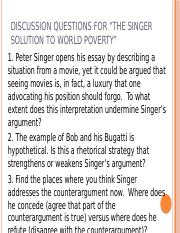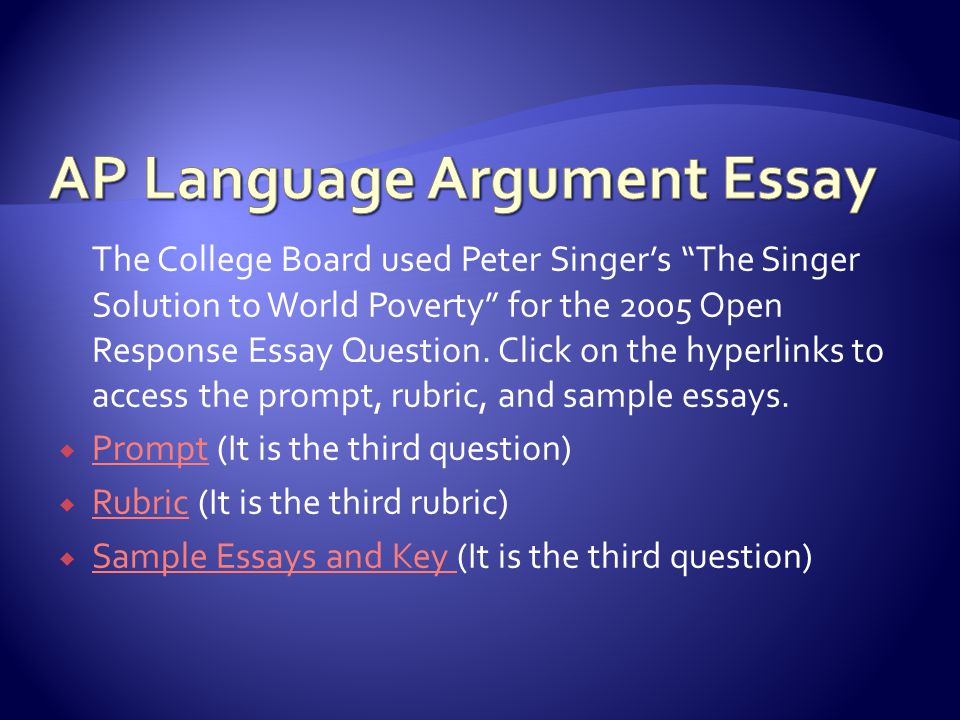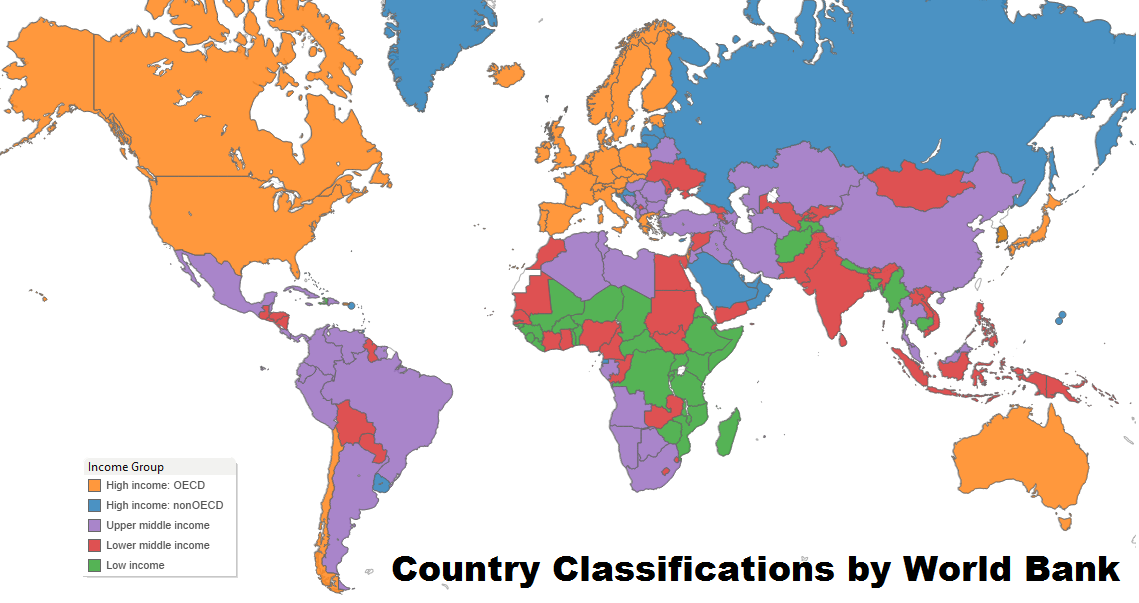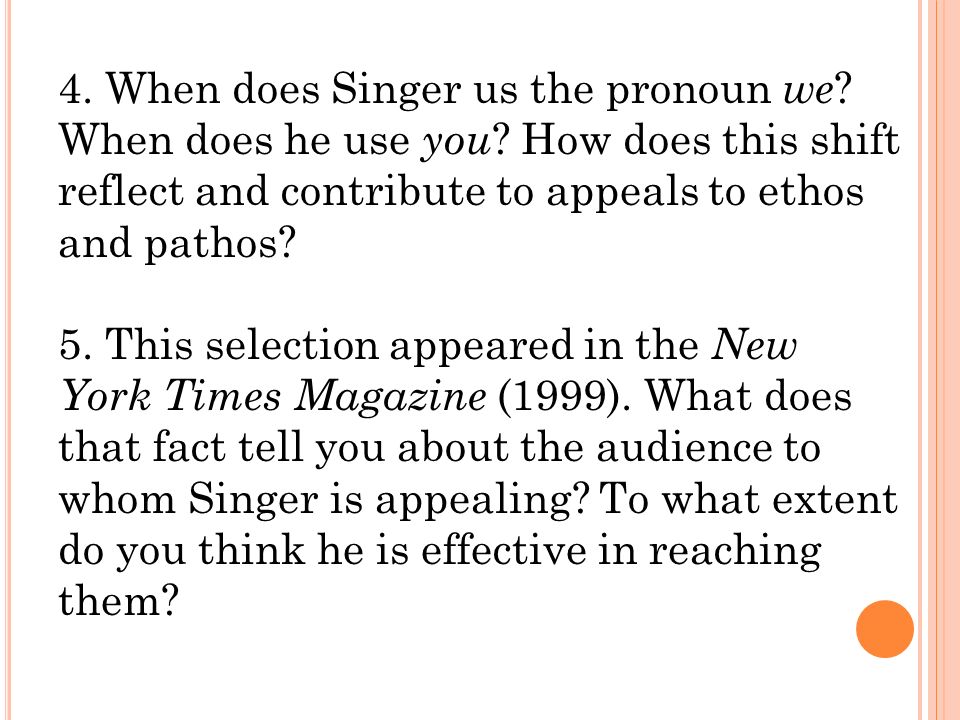The Singer Solution to World Poverty is a controversial essay written by Peter Singer, a philosopher and ethicist. In this essay, Singer argues that people in developed countries have a moral obligation to donate a significant portion of their income to organizations that work to alleviate poverty in the developing world.
One question that might be raised in response to Singer's argument is whether it is fair to expect people in developed countries to bear such a significant burden in the fight against global poverty. After all, many people in developed countries struggle to make ends meet and may not have the financial resources to make large charitable donations.
However, Singer would likely respond by pointing out that the average income in developed countries is significantly higher than in developing countries, and that people in developed countries have a much higher standard of living as a result. Given this disparity, Singer argues that it is not unreasonable to expect people in developed countries to make some sacrifice in order to help those in need.
Another question that might be raised is whether charitable donations are an effective way to combat global poverty. While it is certainly true that charitable donations can make a difference in the lives of those in need, some critics argue that these donations are often insufficient to address the root causes of poverty and may even perpetuate a cycle of dependency.
Singer would likely acknowledge these concerns, but would also argue that charitable donations can play a vital role in providing immediate relief to those in need, and that they can be part of a larger, more comprehensive strategy to combat global poverty. He might also argue that even if charitable donations are not a perfect solution, they are still better than doing nothing at all.
A third question that might be raised is whether it is appropriate for individuals to bear the responsibility for addressing global poverty, or whether this is a problem that should be addressed by governments and international organizations. While Singer would likely agree that governments and international organizations have a role to play in addressing global poverty, he would also argue that individual actions can make a difference and that people have a moral obligation to do what they can to help those in need.
In conclusion, the Singer Solution to World Poverty raises important questions about our moral obligations to those in need, and about the most effective ways to combat global poverty. While the essay has been met with some criticism, it remains an influential and thought-provoking contribution to the debate about how we can work to create a more just and equitable world.







